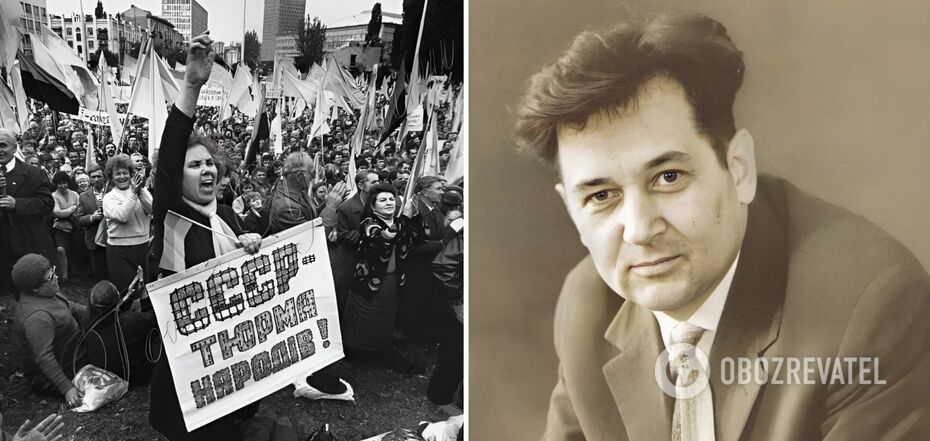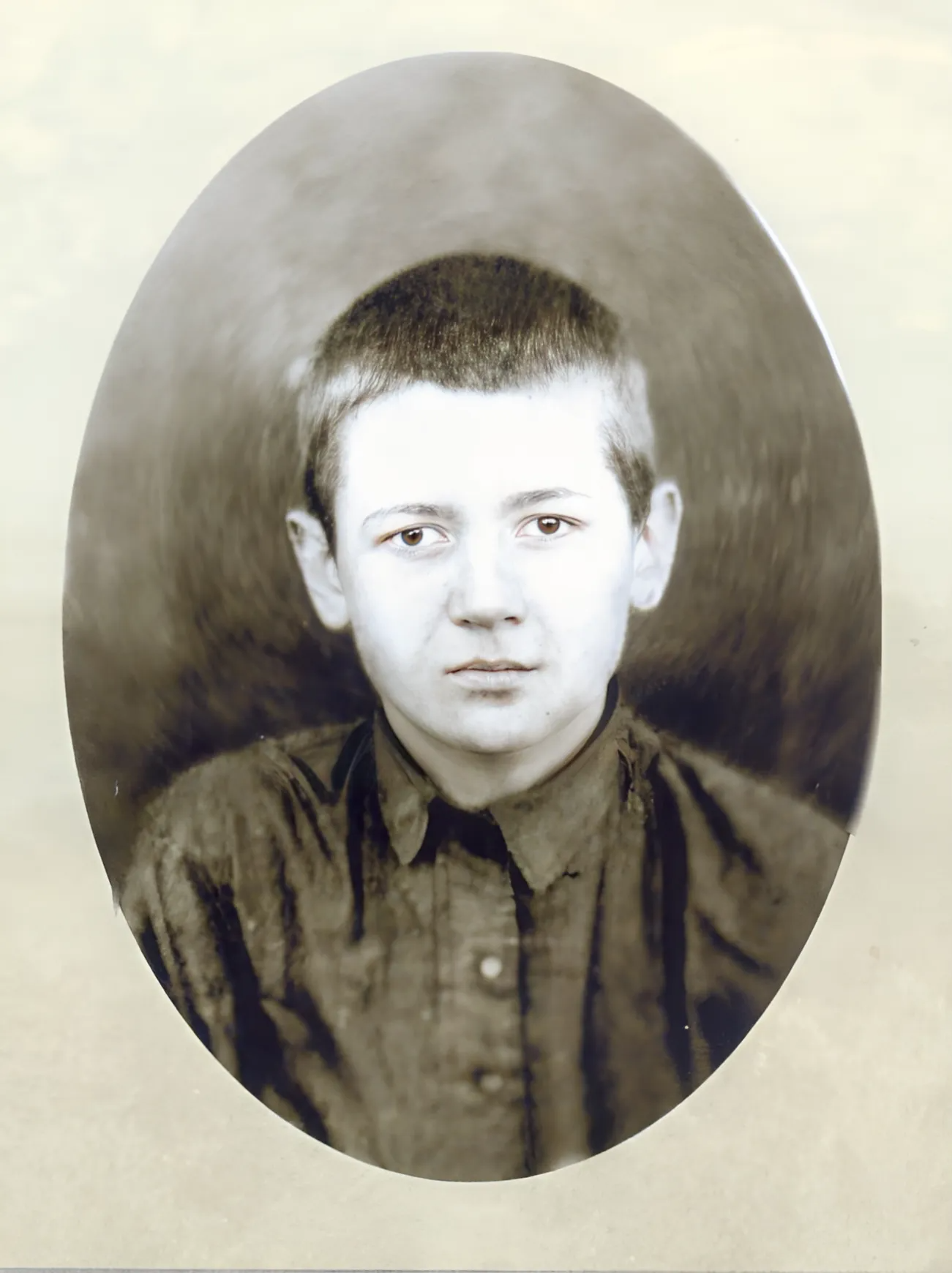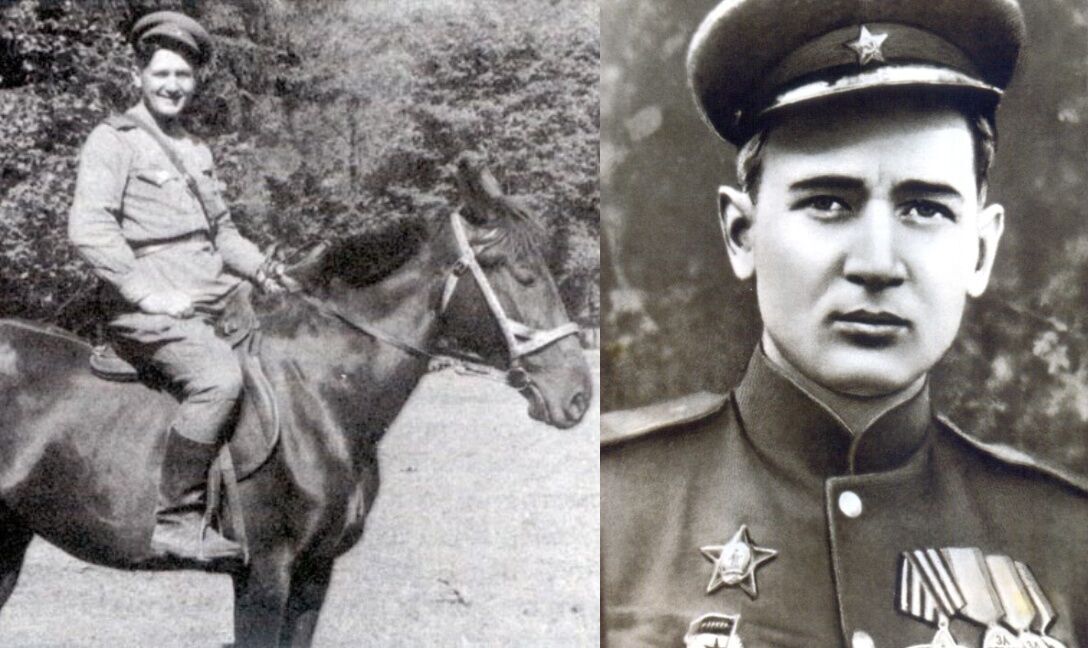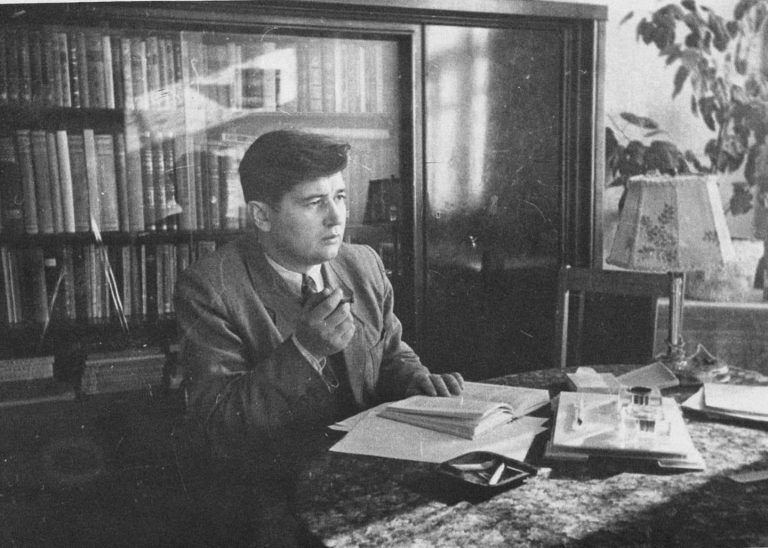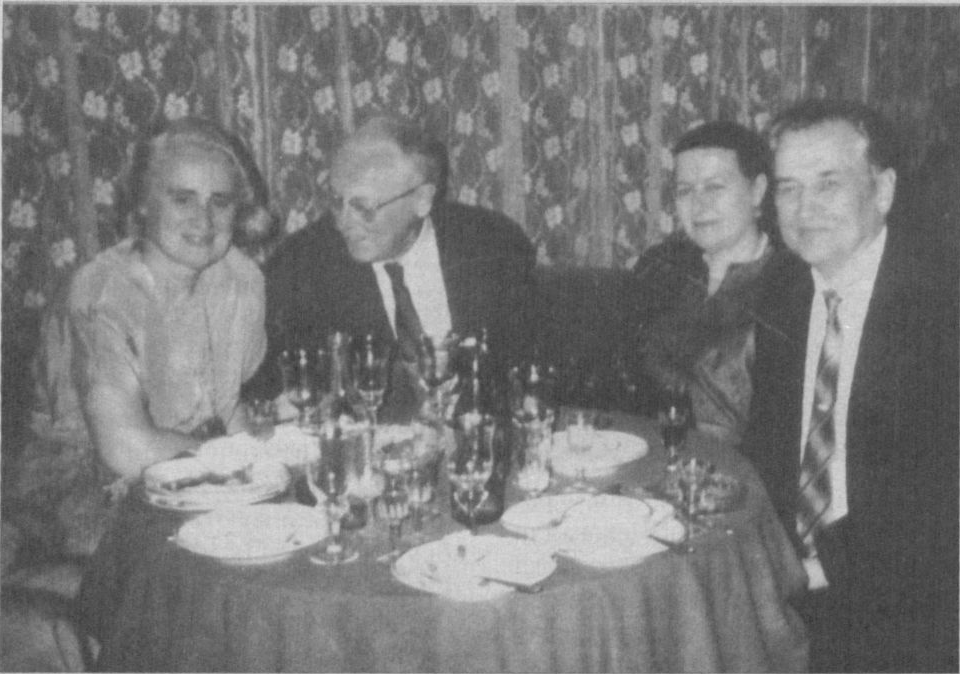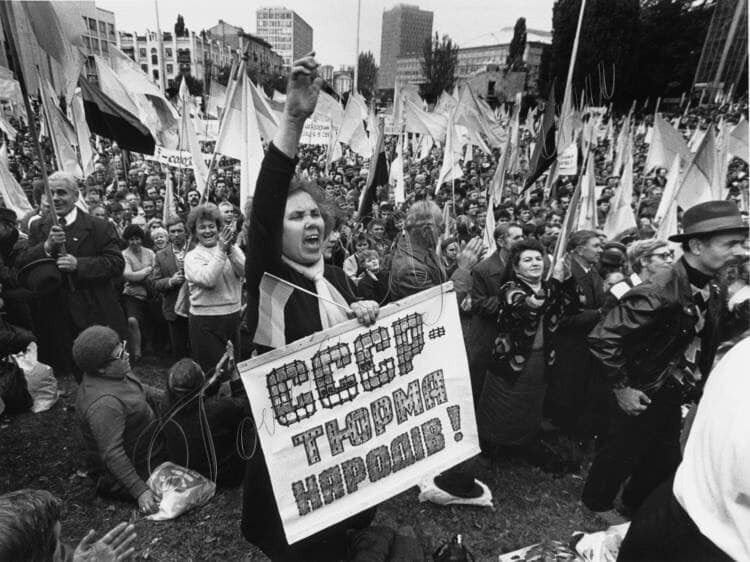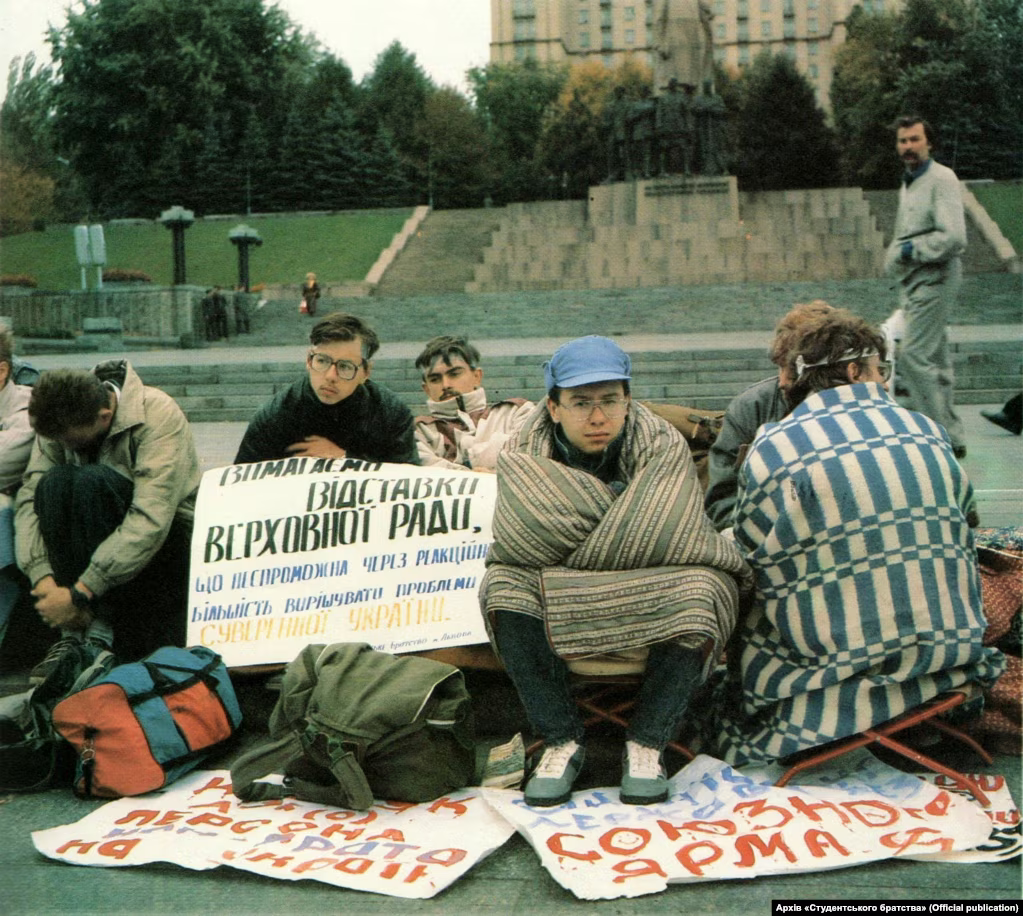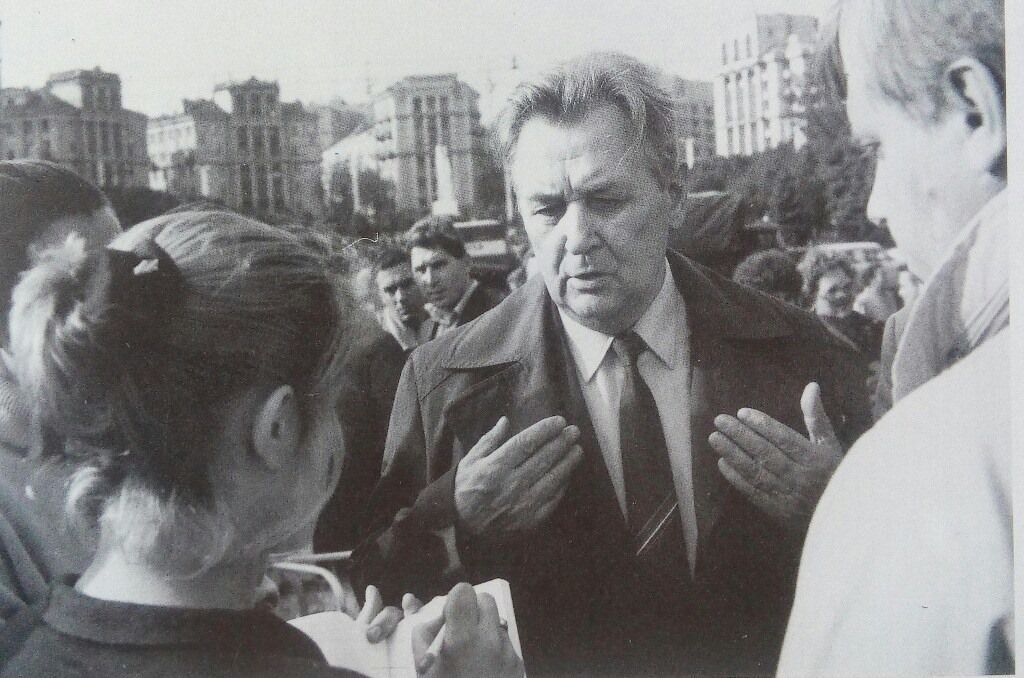Entertainment
"Russia will be eaten alive by the hatred it bears within": 5 interesting facts about famous Ukrainian writer Oles Honchar, who was not afraid to stand against USSR
Ukrainian writer, literary critic, politician, and public figure Oles Honchar received a number of awards and prizes from the Soviets during his lifetime, including the title of Hero of Socialist Labour and the Stalin Prize. He was a member of the Central Committee of the Communist Party of Ukraine and a deputy of the Verkhovna Rada of the U.S.S.R. of the 6th-11th convocations. Despite his high social status, he was not "convenient" or "compliant" for the Soviet government. For example, he did not agree to write magnificent works about its representatives (including the Chairman of the U.S.S.R. Council of Ministers Nikita Khrushchev and the General Secretary of the CPSU Central Committee Leonid Brezhnev) and about the Ukrainian Insurgent Army, for which he received letters of threats. He did not want to join the ranks of sycophants. "You won't let me write the truth anyway, and I don't want to write a lie!" the writer boldly declared.
On the occasion of the 106th anniversary of Oles Honchar's birth, we decided to tell you about the significant events in his life in an article by OBOZ.UA. You may not have known these facts from the life of the author of Liudyna i Zbroia (Man and Arms) and Sobor (The Cathedral) novels. The latter was even banned for 20 years.
1. He survived the Holodomor
Oles learned the value of life at the age of 14. He survived the Holodomor of 1932-1933, the genocide of the Ukrainian nation committed by the leadership of the Soviet Union, led by Soviet dictator Joseph Stalin. At the time, the boy had to remain silent, like most other victims. In 1936, however, he decided to pour out his rage in the novel Stokozove Pole (The Field of Stokozov) to tell the truth. However, problems with its publication arised. The censors gave permission to print it but first changed the text beyond recognition...
Honchar decided not to write any more texts about the Holodomor tragedy. And this decision can be understood. "There are things about which I would not be able to write fiction. Take for example the famine of 1933. This is no longer grief but a real despair, it is anti-life. Something like death. Where there is not a shred of hope, not a single ray of light," he later wrote in his diary.
2. He secretly kept a diary and almost died several times
In 1941, Oles Honchar learned about the outbreak of World War II from a library newspaper. Without hesitation, he quit his studies at Kharkiv University and went to the front as part of a student volunteer battalion. At that time, the Chairman of the U.S.S.R. Council of Ministers, Joseph Stalin, issued a personal order prohibiting soldiers on the battlefield from keeping diaries. Violators were to be court-martialed.
Do you think that Oles obeyed this rule? No, he did not. His front-line memoirs became the plot of the Praporonostsi (Flagbearers) trilogy. From 1942 to 1943, the writer was held in German captivity, where he thought that his life would end there. Later he returned to the battlefield and fought until victory!
According to Oles, sometimes he survived thanks to his special senses, which helped him avoid danger in time. For example, one day a shell exploded in the place where the writer had been a couple of seconds before; on another day, a horse stepped on a mine and lost a leg, and Oles was only stunned by the explosion. Another impressive story is that a shell once hit the writer's room, and he was protected by a lucky wardrobe that fell over. Of course, there were some serious injuries... One of the fragments remained in Oles' leg forever.
3. He defended Ukrainian writers
In 1966, the Central Committee of the Communist Party of Ukraine formed a commission to condemn the book "Internationalism or Russification?" by Ivan Dziuba. Honchar refused to take part in it, and he informed the committee in writing. After a wave of arrests of Ukrainian intellectuals, he wrote in his diary, "Stalinism surpassed everything with its horrors and state sadism. The genocide destroyed the most active and capable forces of the people. For what sins did we suffer such a fate?"
At the same time, Oles stood up for dissidents who opposed the totalitarian system. We are talking about writers Ivan Dziuba, Lina Kostenko, Ivan Chendei, Hryhor Tiutiunnyk, Vasyl Symonenko, Yurii Yanovskyi, and other writers. Because of this, some Communist Party members demanded the arrest of the philanthropist. Fortunately, this did not happen. Why? According to the first secretary of the Central Committee of the Communist Party of Ukraine, Petro Shelest, the world and Soviet public would have negatively perceived any attempts to put pressure on the "frontline hero, soldier, and writer." By the way, Honchar's books were translated into many languages and were part of the U.S.S.R. school curriculum at the time.
4. He received an anonymous threat
For some time, Oles Honchar defended the interests of other Sixties artists, and soon, after writing the novel The Cathedral, he had to defend himself. In 1968, he published a work about the destruction of cultural monuments, environmental pollution, and many other pressing issues...
Shortly after that, the writer celebrated his 50th birthday, which was turned into a nightmare by ill-wishers. As a "gift", Oles received an anonymous letter with the text, "you have nothing left now but to fire a bullet at your forehead". On the same day, at a meeting of the Central Committee of the Communist Party of Ukraine, those present criticized the "Council". Why? Because the plot did not appeal to the leadership of the USSR.
Thus, the novel was officially removed from libraries for being "anti-Soviet" and was banned for 20 years.. . The work was published again in the spring of 1987 in a Russian translation in the Moscow magazine Roman-Gazeta. In the same year, The Cathedral was published in the original as part of a seven-volume edition of Oles Honchar's works.
5. He was a strong supporter of the student resistance action "Revolution on Granite"
On October 2, 1990, Ukrainian students, including Oles Honchar's granddaughter Lesia, gathered in Kyiv, on October Revolution Square (now Independence Square), and went on a hunger strike. The activists put forward political demands, including the early termination of the Verkhovna Rada of Ukraine and the appointment of new elections on a multi-party basis in the fall of 1991; the resignation of the head of the Council of Ministers of Ukraine, Vitalii Masol, and the prevention of the signing of a new Union Treaty.
At the time, MPs cynically mocked the students. Oles Honchar was outraged by this reaction and expressed solidarity with the protesters, "I visited the camp where the students are on hunger strike. I recognized our youth in these tired and exhausted but resilient and capable of self-sacrifice young men... I consider their demands to be quite fair."
Honchar wrote a letter of resignation from the Communist Party. In his diary, he left words that are still relevant today, "Russia will be eaten alive by the hatred it bears within and towards Ukraine... Our statesmen neither forge nor grind. Cretins in government chairs! Why did we elect you? To grind water in a mortar?"
On December 1, 1991, at a session of the Verkhovna Rada of Ukraine, Oles Honchar had the honor of proclaiming the results of the will of Ukrainians to live in an independent Ukraine. On July 14, 1995, the Ukrainian altruist passed away.
Only verified information is available on our Telegram channel OBOZ.UA and Viber.Do not fall for fakes!


